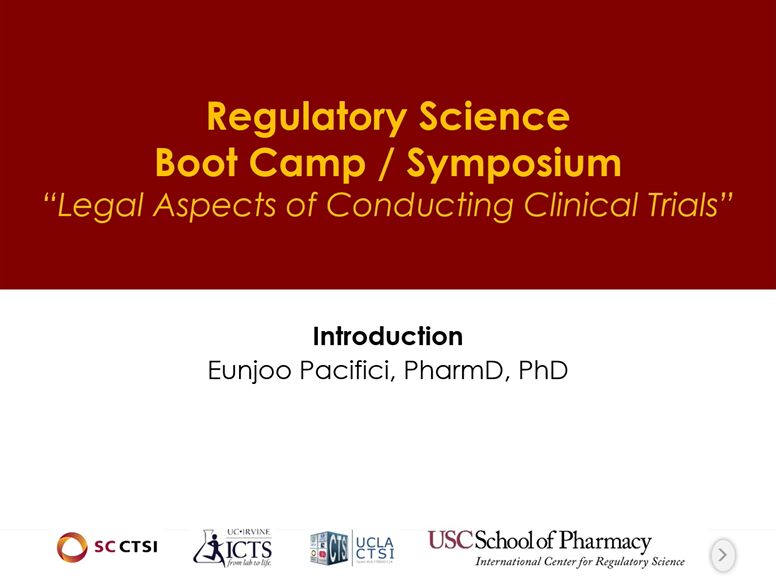- SC CTSI Clinical Research Support (CRS)
- Monitoring Module
- Establishing Monitoring Pool at USC
- USC Graduate & Certificate Programs in Regulatory Science
- Topics suggested that are critical considering the legal aspects of trials
- Boot Camps and Boot Camp Recordings
- Logistics
- Audience Polling
- One key area where the 1572 form, CRFs and GCP all agree is:
- Investigator/Clinical Trial Agreements only address issues around payment.
- The recent changes to Good Clinical Practice in ICH E6 (R2) only impacted sponsors not sites.
- When the investigator is also the study sponsor (IIT) they are responsible for ensuring the study is monitored.
- Form FDA 1572 commitments include which of the following?
- All investigational studies require a 1572 form.
- Frieda visits her physician in her hometown of Hamburg, Germany. Her physician accidentally sends all of Frieda’s medical records to the vendor who handles office supplies. This vendor is in Bakersfield, CA. What laws may apply?
- MonsterTech, with offices around the world, was found guilty of gross negligence in the illegal handling and sale of the personal information of 10,000 citizens of Paris, France. How much do they stand to be penalized?
- Treating physician can file an Investigator Initiated IND for Expanded Access.
- FDA reviews Expanded Access for which of the following:
Regulatory Science Symposium: Legal Aspects of Conducting Clinical Trials Session 1: Introduction & Knowledge Quiz (2019)
Regulatory Science
Research Ethics
Clinical Trials
Clinical Development
Clinical Pharmacy practice
Eunjoo Pacifici, PharmD, PhD
Chair and Associate Professor of Regulatory and Quality Sciences Associate Director, D. K. Kim International Center for Regulatory Science
Topics
Acknowledgement
Accompanying text created by Ashwini Tambe | Graduate Student, Regulatory Science, USC School of Pharmacy | atambe@usc.edu

